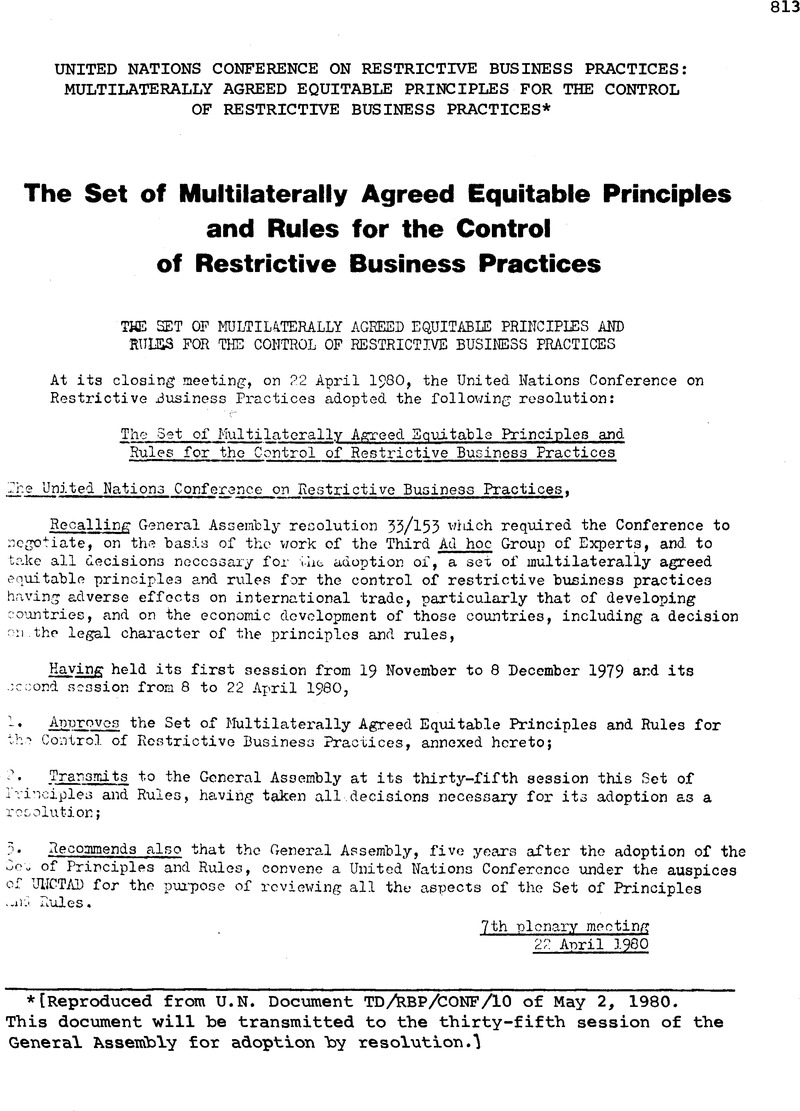Article contents
United Nations Conference on Restrictive Business Practices: Multilaterally Agreed Equitable Principles for the Control of Restrictive Business Practices*
Published online by Cambridge University Press: 04 April 2017
Abstract

- Type
- Other Documents
- Information
- Copyright
- Copyright © American Society of International Law 1980
Footnotes
[Reproduced from U.N. Document TD/RBP/CONFAO of May 2, 1980.
This document will be transmitted to the thirty-fifth session of the General Assembly for adoption Toy resolution.”]
References
*/ Whether acts or behaviour are abusive or not should be examined in terms of their purpose and effects in the actual situation, in particular with reference to Whether they limit access to markets or otherwise unduly restrain competition, having or being likely to have adverse effects on international trade, particularly that of developing countries,, and on the economic development of these countries, and to whether they arc:
(a) appropriate in the light of the organizational, managerial and legal relationship among the enterprises concerned, such as in the context of relations within an economic ontitiy and not having restrictive effects outside the related enterprises.
(b) appropriate in light of special conditions or economic circumstances in the relevant market such as exceptional conditions of supply and demand or the size of the market;
(c) of types which are usually treated as acceptable under pertinent national or regional laws and regulations for the control of restrictive business practices;
(d) consistent with the purposes and objectives of those principles and rules.
- 1
- Cited by




